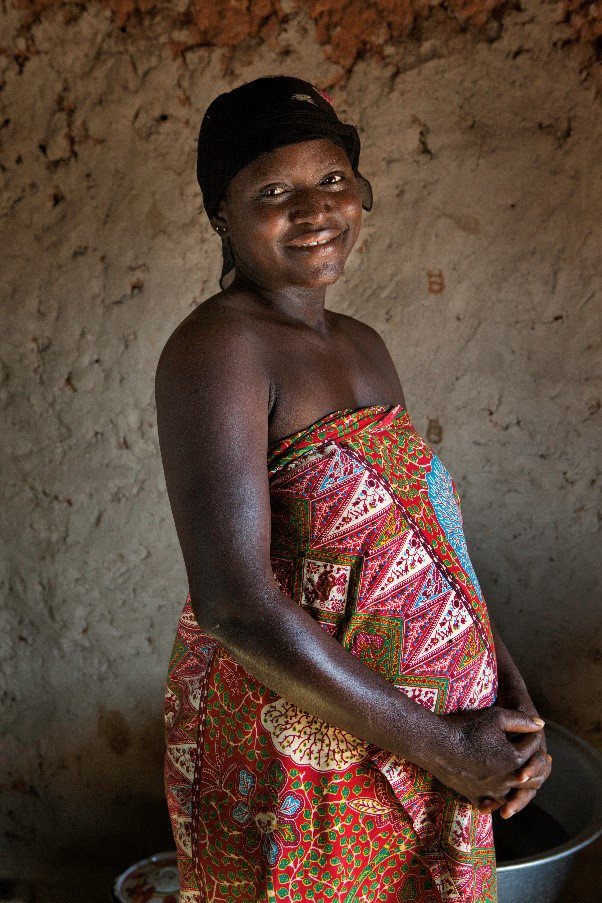PATH’s Dr. Niranjan Bhat has seen a lot of respiratory infections as a pediatric infectious disease specialist. One of the most common causes that puts infants in the hospital doesn’t even have a vaccine to prevent it. It’s called respiratory syncytial virus (RSV) and it’s most dangerous in the first few months of life. For infants where little to no medical care is available and unhealthy conditions are a part of daily life, RSV is too often deadly.
“I’ve seen young infants with serious RSV really struggling to breathe. The stress on their bodies makes it difficult to breast feed or eat,” says Dr. Bhat. “Infection narrows airways and can lead to severe complications like pneumonia and bronchiolitis. It can escalate quickly.”
“Treatments are very basic, but often unavailable in low-resource settings. For example, one of the most important lines of defense is oxygen, but a large part of this world lacks even this basic commodity. And while simple oxygen tanks can be challenging enough to find, it’s harder to afford and maintain even a single a ventilator machine in many hospitals around the world. As a result, we can see parents pumping breaths for their children by hand because of unreliable power supply, no oxygen tanks, or there just aren’t ventilator machines.”
The good news is that RSV prevention interventions are in development and could be available in a few years, including a vaccine. The challenge? The young infants most threatened by RSV are also too young to build up immunity after receiving most types of vaccines. That’s where moms come in.
A promising RSV prevention approach is to help moms protect their infants by getting vaccinated while pregnant—otherwise called maternal immunization. PATH's Center for Vaccine Innovation and Access (CVIA) and Maternal, Newborn, Child Health and Nutrition Program are right there in the mix to support ways in which this strategy can save more lives.

Through maternal immunization, pregnant mothers can have a role in protecting their babies from certain infectious diseases at birth and for several months thereafter. Photo: PATH/Evelyn Hockstein
“A pregnant women can pass to her baby immunity that starts at birth and continues for several months.”
Why maternal immunization?
“By getting vaccinated, a pregnant women can pass to her baby immunity that starts at birth and continues for several months. This also allows time for an infant’s immune system to develop,” Dr. Bhat explains.
Maternal immunization is not new. It already has a safe and effective track record against several diseases, including maternal and newborn tetanus (MNT), influenza, and pertussis. In addition to protecting newborns and infants, some vaccines can also protect pregnant moms from certain diseases that put them at risk.
“Pretty much everyone contracts RSV by the time they are two years old. Furthermore, that first infection doesn’t protect us from later infections. So, we have healthy children and even adults continuing to get infected. They think they just have a minor cold but it’s actually RSV, and they end up spreading the virus—exposing infants even more,” explains Dr. Bhat. “While maternal immunization won’t stop the virus from traveling around the community, it focuses in on protecting those who need it the most – the youngest of infants.”
Momentum is building as developers design vaccines specifically for maternal immunization. RSV vaccines are among these and could be available as soon as 2021 if successful. Other maternal vaccines are in earlier stages of development, including a vaccine against Group B Streptococcus with support from CVIA. Efforts are underway to help the global health community get ready for these kinds of tools, including through the Advancing Maternal Immunization (AMI) initiative—a collaboration of experts coordinated by PATH and the World Health Organization to support decision-making around RSV maternal immunization.
“A maternal RSV vaccine would be a powerful addition to the child health and survival toolkit,” says Dr. Bhat. With 4.5 million children dying every year before their first birthday worldwide, curbing major causes of early respiratory disease like RSV would make a meaningful dent.
“A maternal RSV vaccine would be a powerful addition to the child health and survival toolkit.”
What’s next?
Despite examples of successful use, maternal immunization’s full potential has yet to be harnessed, particularly in resource-limited settings where it’s not widely available beyond MNT prevention. For the approach to reach greater heights, harmonization across immunization, antenatal, and pediatric care communities is a must. A maternal RSV vaccine potentially on the horizon flags this larger need for advance preparation so that, when a vaccine is available, health systems and services are poised to use and make it accessible in routine healthcare.
Every mother deserves to see her child survive and thrive. Hopefully sooner rather than later, more tools will be available to give moms more options to protect their children—and doctors like Niranjan Bhat will see more infants with a chance at healthy lives.



